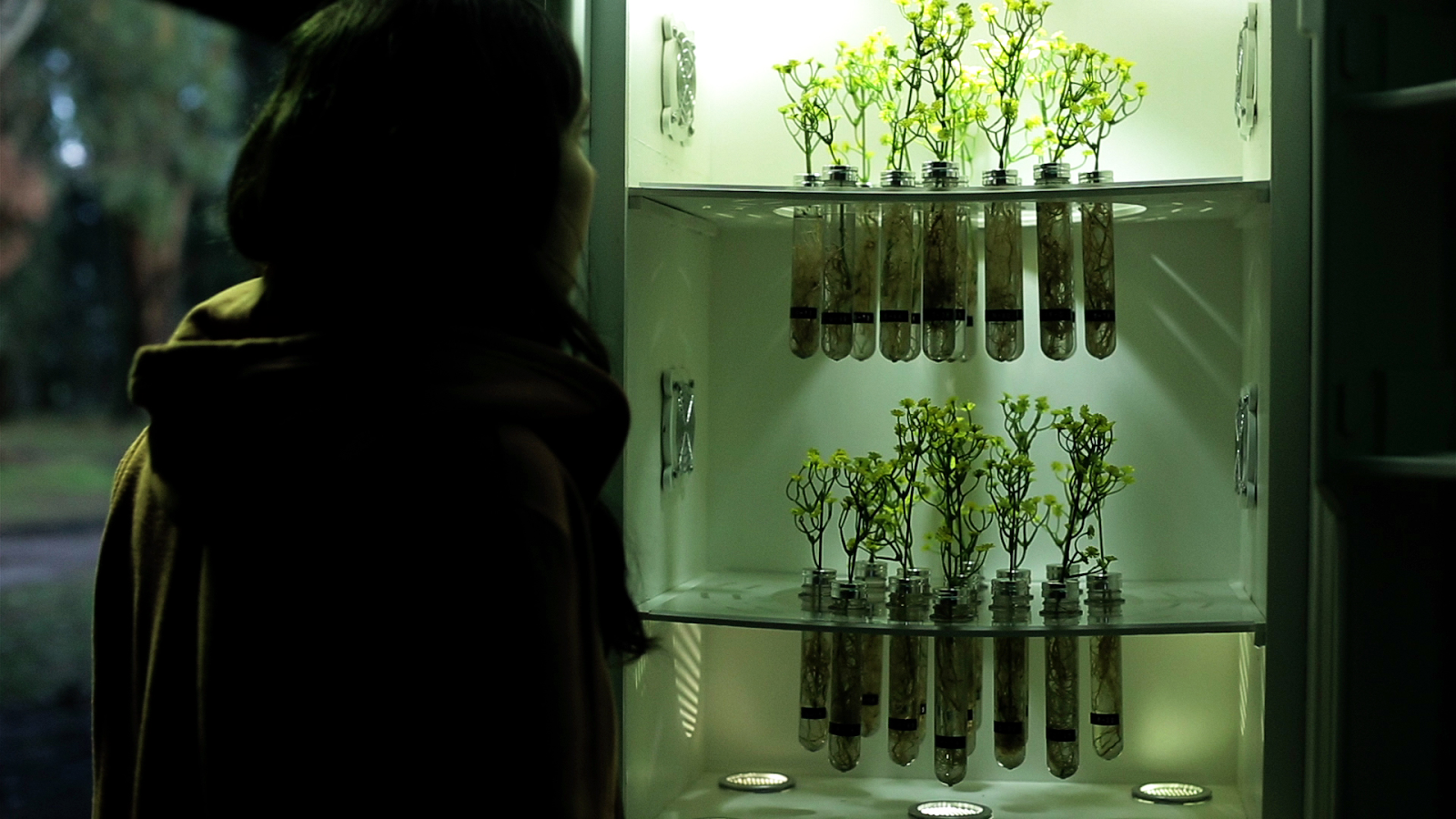In this magisterial portrait of France's diminished place in the 21st-century world, Spaniard Serra deftly introduces the intoxicating, hazy metaphor of politics as a nightclub within a false Polynesian paradise. This is the post-twilight of the colonial order with Benoît Magimel's white-suited high commissioner, embodiment of an exhausted libertine archetype and perfectly juxtaposed against the film's gender-fluid non-professionals, tilting at a power structure beyond his influence. Pacifiction is next level in both its ambition and achievement.
2. The Novelist's Film (Hong Sang-soo, South Korea)
The first of two equally extraordinary new films on this list by the world's most prolific master, The Novelist's Film explores art cinema production from writer to programmer throughout its La Ronde-style structure. However, it is in its closing, first-person declaration of love for star Kim Min-hee that Hong's Berlin prize-winner truly takes its privileged place in one of the cinema's great bodies of work.
Expansive and retrospective in its view of Hong's alternately comedic and dramatic art, Walk Up is most surprising for its destabilizing narrative gaps that present the latest, novel means for introducing his signature repetitions. New loves come, go and contend with estranged daughter Jeong-su in this story of generational turn and the difficulties of making films (which is belied by Hong's real-world productivity).
4. De humani corporis fabrica (Lucien Castaing-Taylor and Véréna Paravel, France / Switzerland)
In the hands of Leviathan's filmmaking duo, the stuff of surgery television is transformed into mystifying documentary cinema—when it isn't palpably visceral in its effect. As the camera dives deep below the skin's surface, this singular work of experimental non-fiction offers up visually arresting images of undefined anatomy, reframing the human body as a site of unknown mysteries (in our illness-obsessed age).
5. No Bears (Jafar Panahi, Iran)
COVID-age video conferencing technology provides a new means for Panahi to circumvent his 2010 travel and filmmaking prohibitions, temptations that the Iranian auteur pairs with the film's metaphorical and literal boundary crossings. That No Bears also returns to the socio-political orientation of his pre-ban corpus, within the more reflexive framework of his 2010s features, makes this his ultimate provocation.
6. Apollo 10 1⁄2: A Space Age Childhood (Richard Linklater, United States)
Linklater structures his deeply personal rotoscoped narrative—the finest of his career—around a child's counter-factual moon landing ahead of the Apollo 11 mission. Time, memory, dreams, dead time, and just hanging out, often in front of a television, combine in this signature work by the director, a film that's at its most exhilarating during its endless passages of consumer culture-obsessed digression.
7. Coma (Bertrand Bonello, France)
Mining a personal canon that draws heavily on Lynch, Superstar: The Karen Carpenter Story and Linklater's aforementioned rotoscoping, Coma unfolds in a series of dreams and nightmares that center around a COVID-confined teen and a YouTube-style celebrity. This film for our time uniquely understands the disproportionate toll that lockdown policies have had on the young, while it awaits their future stories.
8. Unrest (Cyril Schäublin, Switzerland)
Time and space in Unrest are subject to constant measurement, whether it is the work of a Russian cartographer, the persistent photographing of a Swiss factory town or the four different clocks that regulate time as the modern world approaches. Schäublin's feature was one of 2022's great discoveries thanks to its extraordinary thematic rigor and a precise artistry worthy of its anarchist watchmaker heroes.
9. Trenque Lauquen (Laura Citarella, Argentina / Germany)
The latest long-form opus from Argentina’s El Pampero Cine, the production company behind La Flor, Trenque Lauquen displays a similarly Borgesian approach to narrative: stories embed within stories and mysteries compound as the film searches for a botanist Laura, played by co-writer Laura Paredes, who may not want to be found. Director Laura Citarella has made a captivating, no-less protean, and ultimately very worthy successor to the 2018 masterpiece.
The latest long-form opus from Argentina’s El Pampero Cine, the production company behind La Flor, Trenque Lauquen displays a similarly Borgesian approach to narrative: stories embed within stories and mysteries compound as the film searches for a botanist Laura, played by co-writer Laura Paredes, who may not want to be found. Director Laura Citarella has made a captivating, no-less protean, and ultimately very worthy successor to the 2018 masterpiece.
10. EO (Jerzy Skolimowski, Poland / Italy / United Kingdom)
Skolimowski's panoramic road movie, structured around the travels of the eponymous donkey, explores a very different landscape from its Au hasard Balthazar inspiration—save for man's evergreen inhumanity—with its new Europe of migrant movements and disappearing hard labor. EO signals a long-eclipsed baroque art cinema that is refreshed by drone passages that announce its new form of pure cinema.










No comments:
Post a Comment